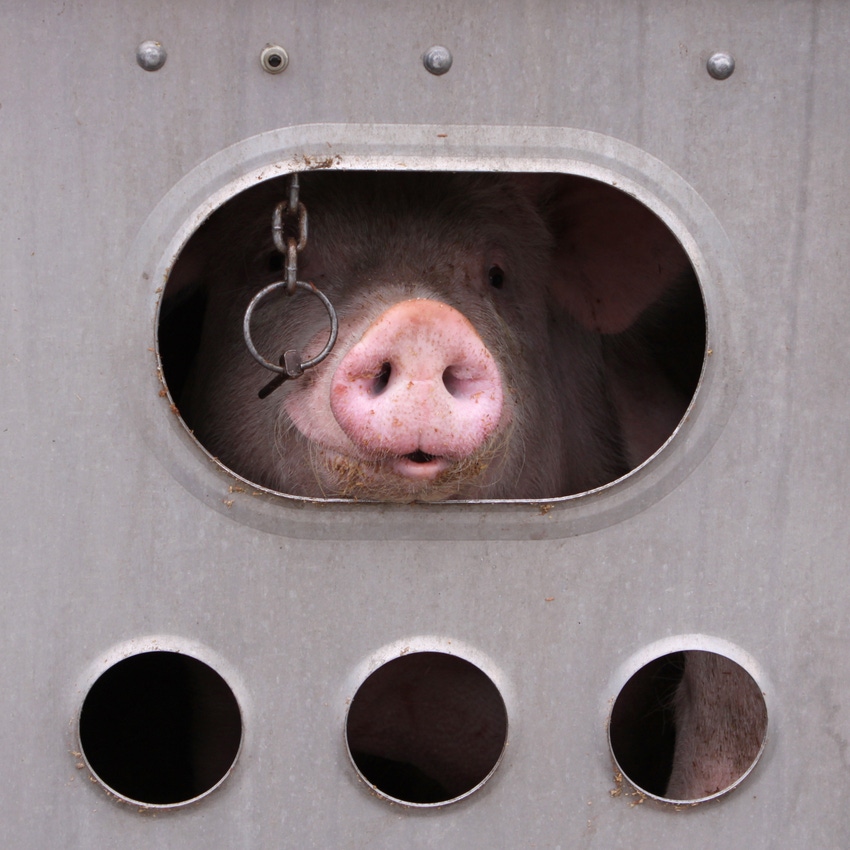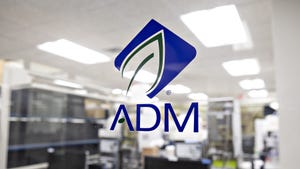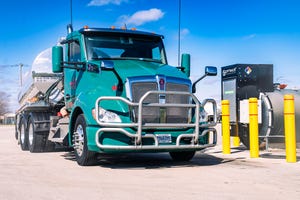Multiple states to enforce swine entry regulations
Slowdowns at meat packing plants have left farmers with few options to process their hogs, so some are shipping them all over the country.

With meat packing plants experiencing slowdowns due to COVID-19, the sale and movement of animals through non-traditional channels has increased, and multiple states are reminding residents of state requirements regarding importing swine and selling pork products.
Packing plant closures throughout the country have resulted in a backup of swine going to feeding and slaughter, which has led many farmers, especially in Midwest states, to seek new outlets for their animals, including sending them across state lines.
Dr. Tahnee Szymanski, assistant state veterinarian with the Montana Department of Livestock (MDOL), said, “We are happy to see Montanans supporting swine producers in other states who have lost their market access. However, we have a responsibility to protect the health of our Montana swine herd, and our import requirements assure only healthy animals come to Montana.”
MDOL also noted that domesticated pigs can revert to a feral state quickly if not housed and managed appropriately. It said Montana has completed a lot of work to prevent the introduction of feral swine into the state, and "now is the time to be especially diligent due to our growing swine population."
The Washington State Department of Agriculture (WSDA) has noted an increase in out-of-state pigs being brought to and sold in Washington, with some sellers failing to follow important animal importation laws meant to protect the state’s livestock industry and public health.
“We know of truckloads of pigs from several midwestern states that have begun to show up for sale on Craigslist and other venues,” said Dr. Amber Itle, Washington assistant state veterinarian. “In some of these instances, the dealers have not followed our animal importation laws, and this raises concerns about disease transmission and animal welfare.”
Closures and slowed production at some Midwestern pork processing plants and other disruptions to the food supply chain may have prompted increased worries about food access for some members of the public. As a result, WSDA has seen an increase in the movement of pigs into Washington.
Many are being sold to would-be or inexperienced backyard farmers who have an interest in raising swine for their own consumption. Itle estimates that more than 4,000 imported pigs have been sold and dispersed across the state since late March.
WSDA has serious concerns about this new population of swine entering Washington.
“Most commercial swine are genetically selected for feed efficiency and growth and are adapted to specific diets to meet their nutritional needs,” Itle said. “Trying to pasture raise these breeds presents management challenges. People may view this as an inexpensive source of do-it-yourself, pasture-raised pork, but it can have poor outcomes and animal welfare implications if not managed well.”
Oregon state veterinarian Brad LeaMaster said, “Our concern is that not all sellers are following Oregon’s animal importation laws. These are hogs we cannot track, and that leads to serious concerns about this new swine population, which could carry diseases that don’t exist in the state. An unknown outbreak could wipe out our swine industry.” Itle echoed the sentiment.
The West Virginia Department of Agriculture (WVDA) has mandated that all imported commercial swine arriving in West Virginia related to COVID-19 be processed upon entry into the state. Currently, WVDA is waiving certificates of veterinary inspection (CVI) for imported swine if they are immediately processed and do no re-enter commerce, the department announced May 26.
“When fellow citizens need our help, West Virginians are the first to respond. As we look to help other states’ farmers, we must ensure our own production is not affected. That is why we are asking swine, which require a CVI waiver, to be processed upon arrival to West Virginia to avoid the spread of potential diseases,” West Virginia commissioner of agriculture Kent Leonhardt said.
"Although there have been no reports of sick hogs coming into West Virginia, the WVDA is working with [the West Virginia University] Extension Service to educate brokers who wish to import swine. We must protect our food systems, especially local production, as we see stresses related to COVID-19,” Leonhardt said. “Imported swine should go directly to processing and not change hands multiple times. Any signs of illness should immediately be reported to WVDA Animal Health personnel."
The Tennessee Department of Agriculture (TDA) is reminding citizens that illegally importing livestock into Tennessee can have wide-reaching negative effects. Livestock producers, dealers and citizens must adhere to state and federal import requirements for any livestock shipped into Tennessee. The COVID-19 pandemic has created backlogs at meat processing facilities in other states, leading to an increase in illegal shipments and sales of pigs in Tennessee.
“This presents a health risk for livestock and people in Tennessee,” state veterinarian Dr. Samantha Beaty said. “Even swine that are raised commercially can carry diseases that aren’t detectable without the proper testing and verification. It’s critical for everyone to follow livestock import rules and requirements to make sure we don’t bring illness here.”
TDA oversees interstate and intrastate movement of animals in Tennessee. TDA’s Agricultural Crime Unit will work with law enforcement agencies and animal health technicians to confirm import compliance for livestock in transit and at livestock markets statewide.
TDA said individuals planning to purchase livestock for meat should first check local processors for scheduling availability since many facilities nationwide are booked several months out, requiring extended time and expense to maintain and care for the livestock before processing.
Individual state animal health and interstate/intrastate movement regulations may vary and are available from the respective state agencies.
About the Author(s)
You May Also Like

.png?width=300&auto=webp&quality=80&disable=upscale)

